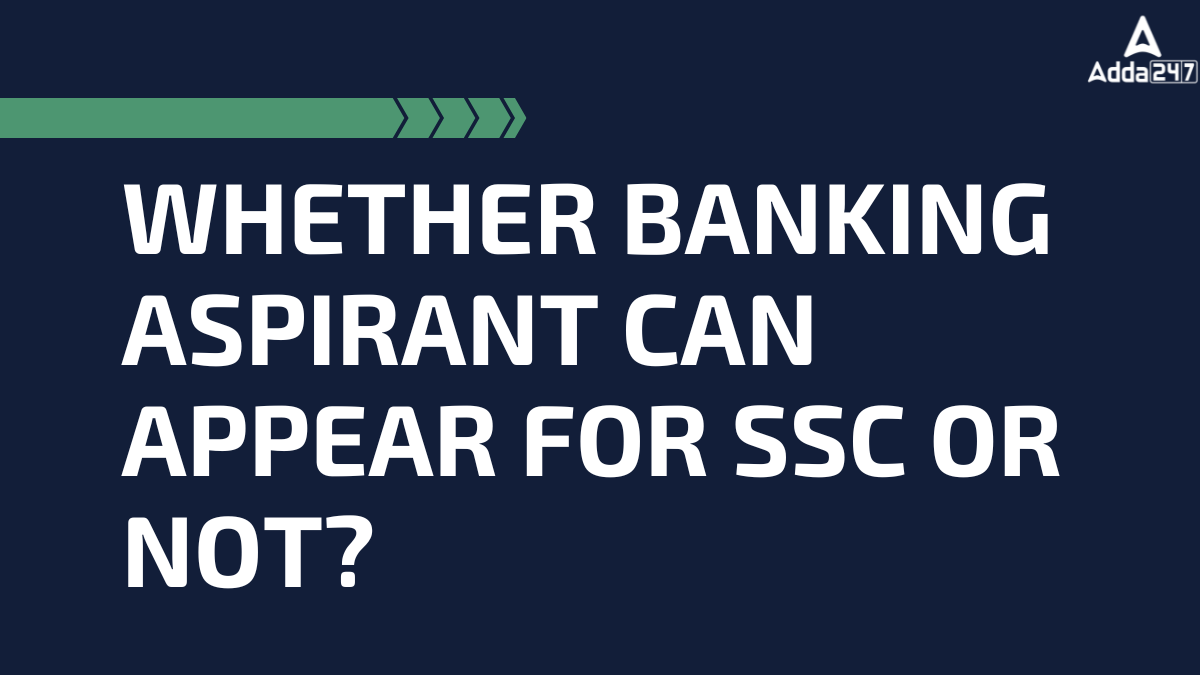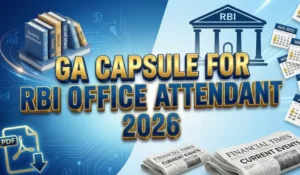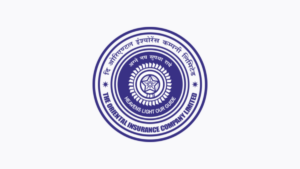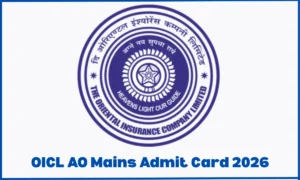Banking and SSC (Staff Selection Commission) exams are two of the most popular career paths for government job aspirants in India. While both sectors offer job security, decent salary packages, and social prestige, candidates often wonder if preparing for one means they cannot pursue the other. One common question among aspirants is, can a banking aspirant appear for SSC exams as well? The straightforward answer is yes, a banking aspirant is completely eligible to appear for SSC exams, provided they meet the required eligibility criteria. However, it is important to understand the similarities, differences, and practical considerations before making this decision.
Whether Banking Aspirant can Appear for SSC or Not?
A banking aspirant can absolutely appear for SSC exams, and in many cases, it can even be a strategic advantage. The eligibility conditions, overlapping syllabus, and flexible preparation methods make it a viable option. However, aspirants must assess their career preferences, job expectations and willingness to adapt to the SSC exam pattern. With the right planning and commitment, a banking aspirant can successfully diversify their opportunities by appearing for SSC exams as well.
Candidates can even study for both SSC and Banking exams simultaneously as there are a lot of similarities in their exam patterns and syllabus. Let us discuss how a banking aspirant can prepare for the SSC exams?
Eligibility for SSC and Banking Aspirants
Both banking exams (like IBPS, SBI) and SSC exams (like SSC CGL) have similar basic eligibility criteria. Most of these exams require a graduation degree from a recognized university, irrespective of the discipline. Age criteria are also largely similar, generally falling between 20 to 30 years for entry-level positions, with relaxations for reserved categories. Therefore, from an eligibility standpoint, a banking aspirant is well within the rules to apply for SSC exams too.
How should you prepare for the SSC Exams being a Banking Aspirant?
Although there is a lot of similarity between the exam patterns and syllabus of banking and SSC exams still there are some ways in which a banking aspirant can prepare for the SSC exams more efficiently:
- Know the nature of the exam: the candidate must verify whether the exam pattern and syllabus is similar to what he/she has prepared so far for the banking exams.
- English language section: In this section questions are mainly asked from reading comprehension, para jumbles, fill in the blanks, error spotting, freeze replacement and sentence correction, word association pair, etc. these topics are common in SSC and banking exams. Most of the English language section follows the same pattern in the SSC exams as well as in the banking exams. Candidates, if familiar with this section from the Banking Exams’ Preparations can give mock tests and make their preparation for this section even stronger.
- Quantitative aptitude section: Some of the important topics from this section are data interpretation, averages, time speed and distance, mensuration, interest, percentage, algebra, time and work, approximation, etc. these are some so common topics that are asked in the banking as well as SSC exams. But SSC exams carry a wider variety of topics like geometry and trigonometry which the candidates have to study in addition to what they have studied for the banking exams.
- Reasoning ability section: most of the students find the reasoning/logical reasoning section one of the toughest sections in banking exams while in the SSC exams The section is less difficult. Some of the common topics that are asked in both SSC exams and banking exams from the reasoning aptitude sections are directions and distances, coding-decoding, seating arrangements, puzzles, input-output, order and ranking, inequalities, blood relations, verbal reasoning, etc. Candidates must practice these questions thoroughly and try to score maximum marks in them to increase their overall score.
- General awareness section: In the banking exams the main focus of the general awareness section is on financial awareness. While on the other hand the SSC exams largely cover static general knowledge topics along with a few questions on current affairs. The static GK includes topics like history, polity, geography, general science and technology, environment, sports, etc. Candidates must cover all these topics while preparing for SSC Exams to score qualifying marks in the General Awareness section.
Differences to Consider for Banking Aspirants
Despite the similarities, there are also key differences that a banking aspirant should be aware of before attempting SSC exams. SSC exams, especially CGL and CHSL, place a greater emphasis on static General Knowledge, Polity, History, Geography, and basic Science, whereas banking exams focus more on current affairs and financial awareness. Additionally, SSC Tier-II includes a dedicated paper on Quantitative Abilities and English, which is often more detailed than what is found in bank prelims or mains. Moreover, the time frame for SSC results and postings can be significantly longer compared to banking exams.




 GA Capsule for RBI Office Attendant 2026...
GA Capsule for RBI Office Attendant 2026...
 OICL AO Mains Exam Date 2026, 300 Posts,...
OICL AO Mains Exam Date 2026, 300 Posts,...
 OICL AO Mains Admit Card 2026 Out at ori...
OICL AO Mains Admit Card 2026 Out at ori...








